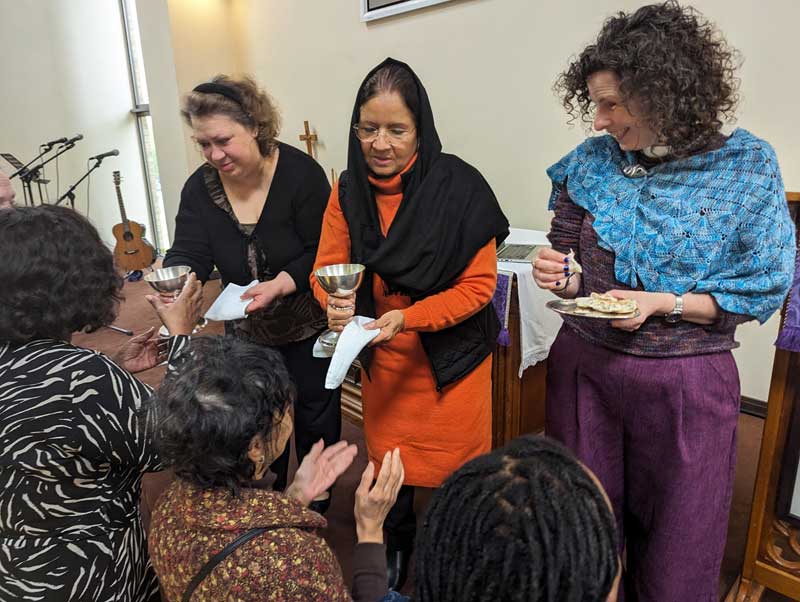The Revd Steve Taylor is joint vicar with his wife Ali, of the multicultural parish of Alperton, North West London. He describes the benefits and challenges of making their communion service more welcoming and inclusive of those from different cultures.
‘I truly understand that God has no favourites.’ declares Peter in Acts 10:34 and this principle has been so important for our church. We are a diverse parish and have a number of other language speakers in our congregation, the most common languages being Hindi and Tamil. Several people who came to our church only spoke those languages and not English, and this confronted us with a serious issue. How could we include them in our worship when most of our words were incomprehensible to them? How could we demonstrate that God does not have favourites?
We started out by having the Bible readings read by people in their own language, with two other languages projected on the screen behind them. We then moved from saying the Lord’s Prayer together in English to inviting people to pray it as they know it best. This helped us to realise that our English speakers were split 50/50 as to whether they preferred the traditional or contemporary version, as well as the fact that we had a number of other languages present in our community.
Some of our simplest choruses such as, ‘God is so good’, were easy to translate into other languages and we moved to singing a line in English, a line in Tamil then lines in Hindi, Farsi, Afrikaans and Bulgarian. The first Sunday we sang the multi-language version, our Bulgarian member spoke to us at the end of the service,
“I couldn’t sing it today.”
“Oh I’m sorry, did we get it wrong?”
“No, it was right. I could hear everyone singing my language and I was crying – it was so beautiful!”
I felt humbled that a really small gesture on our part (those were the only four words of Bulgarian in our whole service) had such a huge impact on her. The effort to include her language and to recognise her as part of our community really spoke of God’s love and care.

In our intercessions now, we often pray in small groups in the congregation and ask people to pray in their home language. Some people are reluctant to pray, but it has enabled more people to join in with more of the service.
For Communion, the president speaks in English and the responses are projected in English, Hindi and Tamil. Our experience is that most of our congregation use the English responses (even when their first language is different) but, at the least, those who are monolingual Tamil, Hindi or Gujarati, are able to follow what is being said. We had a visiting Tamil priest (cousin to a church member) last year and we invited him to preside in Tamil rather than in English, as we don't often get that opportunity – the responses were all still there in English, Tamil and Hindi so we could all respond.
We have also had some challenging conversations where some members have protested at not being able to understand when people speak in their home language. There is discomfort in making space for other people, but our experience is that it is outweighed by the deepening of relationships within the church. We have not arrived, and we continue to find new ways to make our service open to all: translating the Communion responses, learning and singing whole songs from other cultures (NB: ‘hallelujah’ is universal!). Communion itself is a very visual illustration of God’s story – eating and drinking require no language – and has become more important to us as a result.
We are also finding that people are growing in their faith because they don’t feel the need to hide themselves in church. As we welcome all of who they are in our worship, they recognise that God loves them completely and can receive that love in a new way.